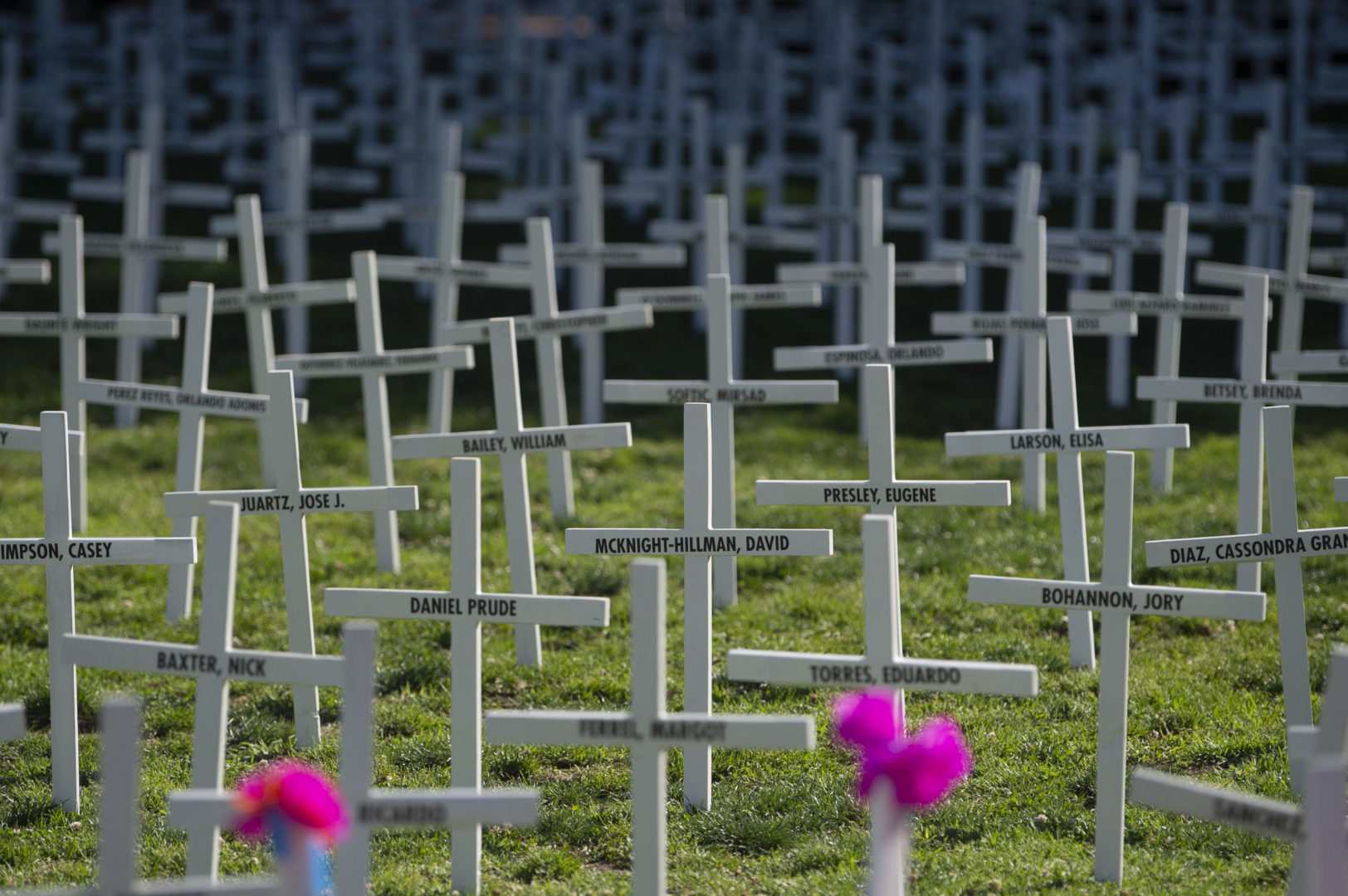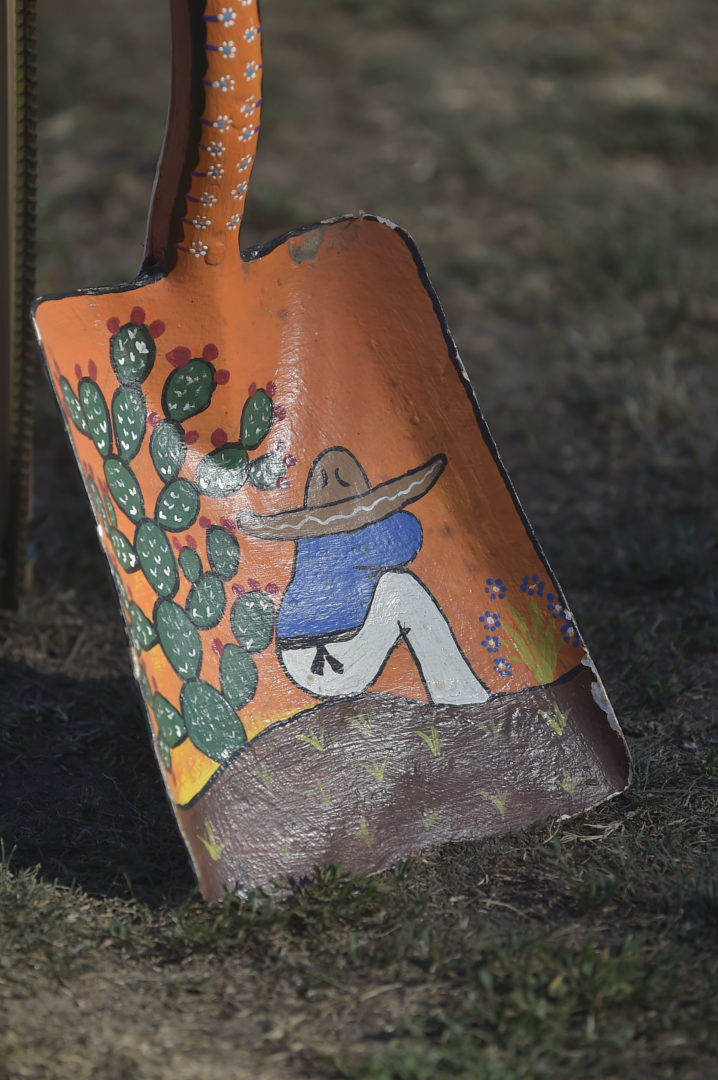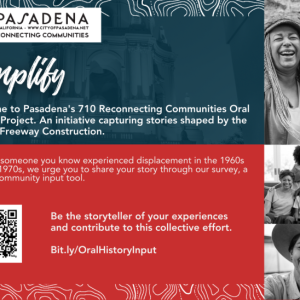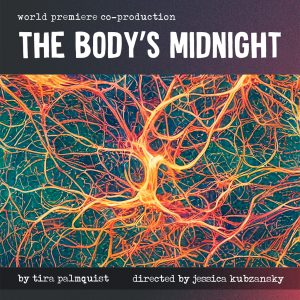 View Winners →
View Winners → Immigrant workers who died of COVID honored with crosses in Pasadena
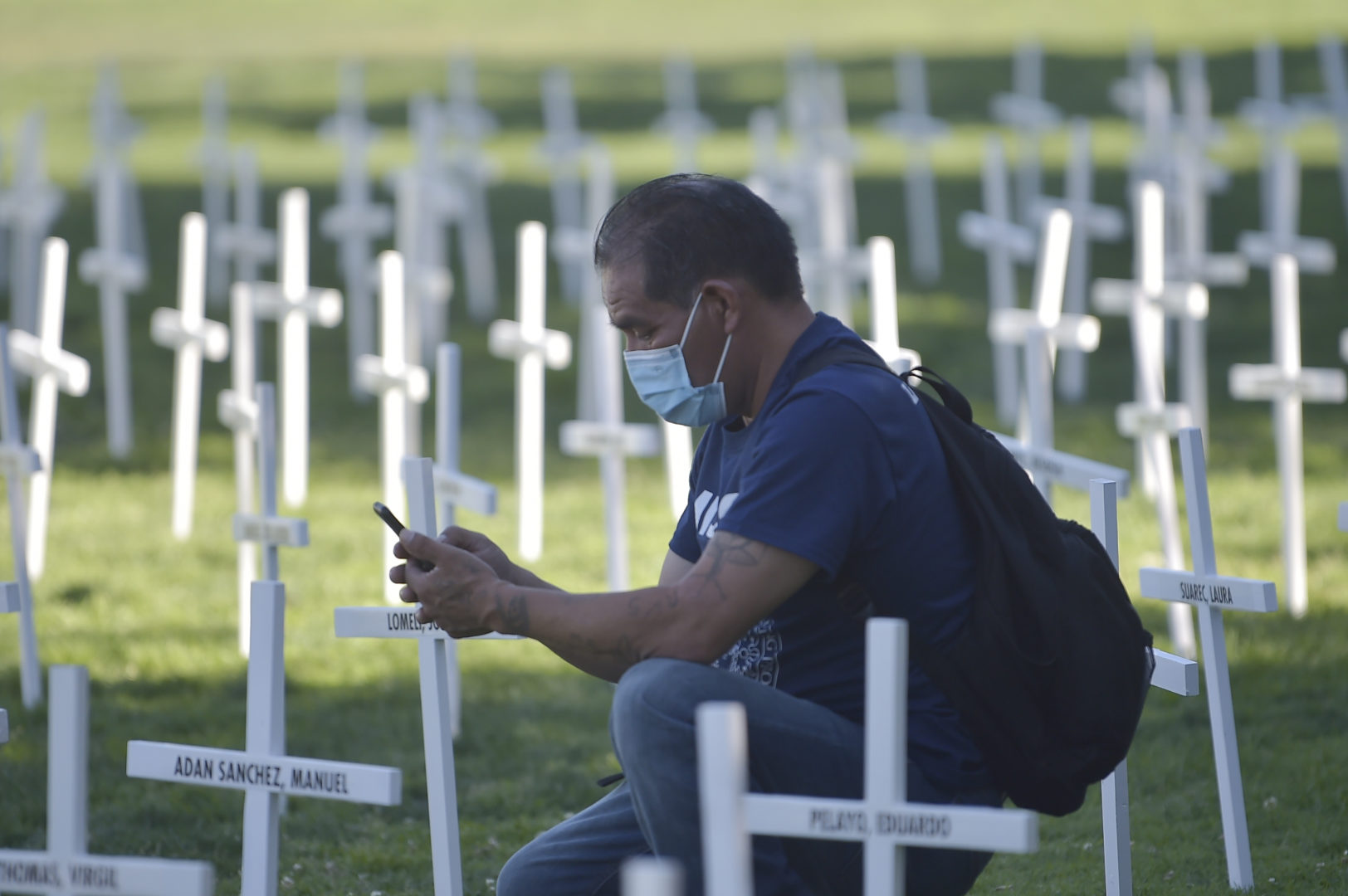
The National Day Laborer Organizing Network (NDLON) on Wednesday installed 600 hand-made, pine crosses in Pasadena’s Villa Park to represent the thousands of immigrant workers who lost their lives during the COVID-19 pandemic.
Scores of people attended the emotional event, including Pasadena Mayor Victor Gordo.
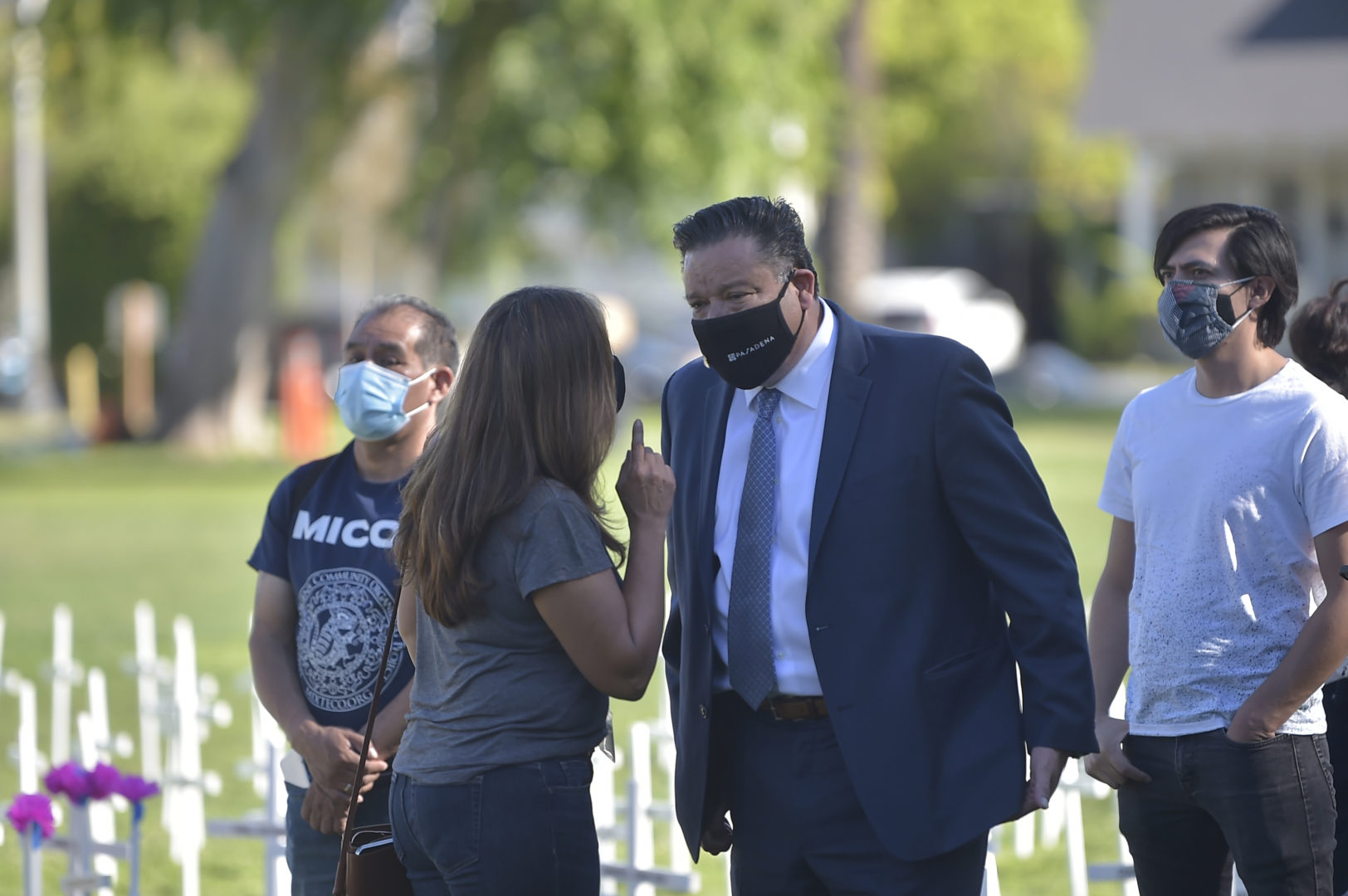
The crosses, made of simple pine, were marked with a name, date of birth and death, and occupation of someone who died in the pandemic.
The rows of crosses resemble a military cemetery, to evoke the vast scale of the loss and to also make an important connection. “Fallen soldiers are among our society’s most honored dead. We respect and remember their sacrifices that keep our society intact. Fallen immigrant workers are no different. We must no longer ignore and dismiss them,” said Pablo Alvarado for NDLON.
Thirteen months ago, as a new virus emerged and spread fear across the nation, a new term also appeared: “essential worker.” The term was coined by the Department of Homeland Security, an agency that many feel terrorized immigrant workers into leaving the country. But the term took hold more broadly, and from one day to the next, the idea of essential workers became part of our shared vocabulary.
While some were fortunate enough to work from home, essential workers went out each day. They took the risks that enabled the rest of society to live in relative comfort and safety. They received praise and gratitude from politicians and celebrities alike.
“Essential workers” have died by the tens of thousands over the last year, at greater rates than others. Workers of color, who make up a disproportionate number of “essential workers,” have also died disproportionately. “In Los Angeles, where 23,000 people have died of the virus, COVID-19 has killed Latino residents at a rate nearly three times that of white residents,” NDLON said.
NDLON held a virtual service and concert that was live streamed on the internet for those who could not be there in person.
During the service, the group called for immediate amnesty for the surviving family members of the deceased immigrant workers.
In addition to the placing of the crosses, NDLON released a compelling report Thursday on the impacts of the pandemic on immigrant workers and people of color in the U.S.
The 10-page document details disparities resulting from the pandemic and makes recommendations for actions that President Joe Biden can take without need for additional congressional approval, according to NDLON.
The group paid their respects to Gil Espinosa, a warehouse worker, age 44; Alfredo Manriquez, a gardener, age 54; Mónico Manríquez, a gardener, age 83; José Antonio Bernabe Lule, age 61, a day laborer, organizer and immigrant-rights leader. Garment workers were also recognized, including Antonio Macías, 63; Enrique Garcia, 34; and Filiberto De la Cruz, 62. Among day laborers, NDLON recognized Marina Villanueva, 60; Francisco Delgado López, 98; Godofredo Rivera Hernandez, 70, a day laborer, dry-cleaner worker and musician; Policarpo Chaj, age 49, a Mayan K’iche leader, organizer and court interpreter.
“These people and others lived and worked in cities and towns and suburbs in all the states. They worked in the meat-packing plants, who were forced to stand too close to their colleagues on processing lines without enough protection from the invisible virus. They worked in restaurants, cooking meals, washing dishes, mopping floors, and cleaning toilets at risk from the virus for many hours each day. They worked in fields, planting, caring for, and harvesting food that every single one of us consumes. They earned their livings making deliveries and cleaning homes, caring for children and the elderly, the fragile and the sick. Then they got sick themselves.
“So many of these people were once migrants who crossed a border into this country to begin new lives of strenuous work and sacrifice in hopes of taking part in a shared national dream of prosperity, progress, and infinite possibility. Hope brought them here, and hope sustained them through long days and years of toil that was difficult and often dangerous. They held on to hope, once this country’s most precious shared national resource, just as they held on to dignity, as do all laborers who use their hands and hearts in service to others,” NDLON said on its website.






































































































